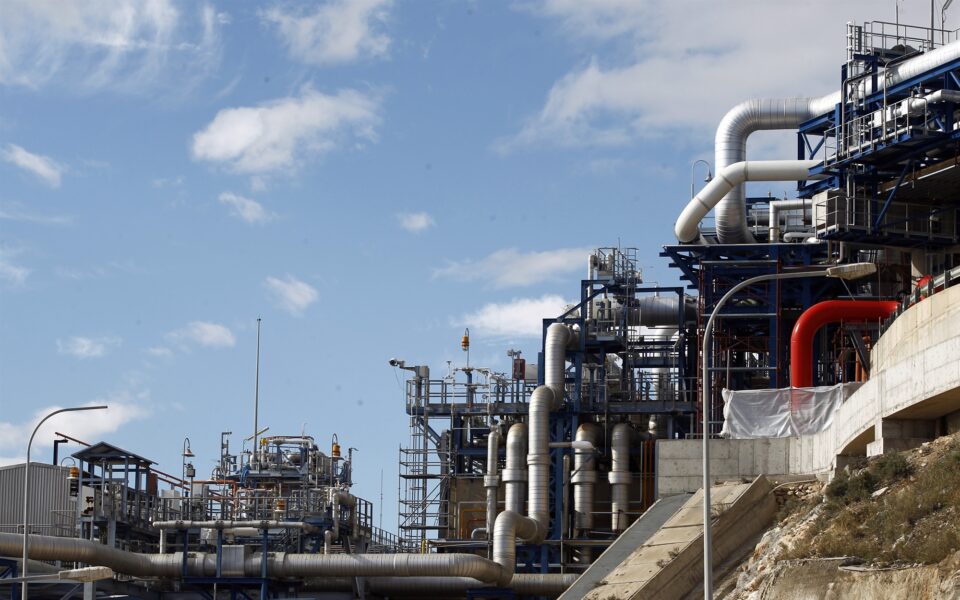Sofia and the Greek-Turkish energy race

The recent announcement of a long-term energy agreement between Turkey and Bulgaria giving Bulgargaz access for 13 years to the regasification terminals of Turkey’s state-run Botas pipeline company, thus offering assured quantities, came as a surprise to some and caused consternation in Athens.
Especially after the reactivation in 2019 of the Greece-Bulgaria High-Level Strategic Cooperation Council (HSCC), which reconvened in the northern Greek port of Alexandroupoli in February 2020 after a long hiatus, bilateral relations between the two neighbors seemed to have entered a new and fruitful footing, with energy being a key part of this. Even before the Alexandroupoli meeting, a bilateral agreement for the Interconnector Greece-Bulgaria (IGB) natural gas pipeline had been finalized in September 2019, signed in October 2019 and put into operation three years later despite the enormous problems caused by the pandemic. This pipeline currently covers more than a third of Bulgaria’s needs by giving it direct access to the Trans Adriatic Pipeline (TAP), while before it was signed, the country was able to import the quantities foreseen in its contract with the Shah Deniz consortium through Greece’s DESFA natural gas network.
A few months after the HSCC meeting, Bulgarian Energy Holding (BEH) finalized the agreement for the acquisition of 20% of the share capital of the Alexandroupoli floating storage regasification unit (FSRU), signing the relevant agreement at Zappeio Hall in Athens in August 2020. In one of its last acts in government, the administration of Boyko Borisov cosigned a letter by Greece, Cyprus and Israel to the leadership of the European Union arguing the strategic merits of the EastMed natural gas pipeline, thus strengthening the Greek and Cypriot position, which allowed the initiative to earn the status of a project of common interest (PCI). What’s more, under the new PCI list drawn up in 2021, EastMed effectively became the only natural gas infrastructure project in Europe.
Following the loss of Russian exports in April 2022, Greece’s transmission system operator (ESFA) assumed responsibility for covering all of Bulgaria’s needs by giving it unlimited access to the Revithoussa LNG terminal. Indeed, around 35% of total flows channeled through the Greek ESFA (roughly 30 terrawatt hours or 2.5 billion cubic meters annually) in 2022 went to Bulgaria.
More recently, and following the decision to increase the capacity of the IGB to its maximum limit of 5 billion cubic meters annually (bcma), Bulgaria will be able to draw from quantities in transit to Serbia, North Macedonia and Romania that far exceed its domestic consumption.
To sum up, Bulgaria has strategic-level participation in three infrastructures that are crucial to its energy security, which start in or run through Greece (IGB, Alexandroupoli FSRU and the Maritsa-Nea Santa high-voltage electricity transmission line). So where does its deal with Turkey fit in? What is Sofia looking for in Turkey that it can’t get from Greece?
Bulgaria is seeking to diversify its energy sources, just as Greece has been doing for years by developing multiple natural gas sources and import routes
The answer is very simple and very reasonable. It is seeking to diversify its energy sources, just as Greece has been doing for years by developing multiple natural gas sources and import routes. The quantities Bulgaria is getting from Greece come to around 2.2.5 bcma against total consumption of 3-3.5 bcma, while of these quantities, 1.5 bcma is ensured over the long-term thanks to BEH’s participation in the IGB and the Alexandroupoli FSRU. Bulgarian firms, moreover, will always have the possibility to access or forge swap deals via Revithoussa for additional quantities on a short-term basis. Basically, the rate of Bulgaria’s transit dependence on Greek infrastructure will continue to be greater than on Turkey’s in the medium to long term.
Completion of the Alexandroupoli FSRU and the Greece-North Macedonia gas interconnector in 2024 will ensure that much of our northern neighbors’ demand is met through these systems, well before Turkey begins tapping the fields it discovered in the Black Sea, which will create a significant re-exportable surplus of Russian natural gas as agreed with Botas, but will no longer be needed after 2025-26 when the Turkish fields are fully productive.
If this re-exportable surplus, which may reach 20-30% of current Turkish consumption covered by Russian Gazprom, is then supplied via the Trans-Balkan Pipeline in reverse to Romania and Ukraine, it will effectively cancel out whatever plans we have for building a second terminal in Alexandroupoli, while also weakening the commercial appeal of other export-oriented FSRUs at different stages of development in Volos and Thessaloniki.
If we want natural gas to flow through the Trans-Balkan pipeline to Ukraine through the Greek networks as well, it is important that we continue to build on theGreek-Bulgarian relationship. One way to do this is to push the Alexandroupoli-Burgas oil pipeline project, which will release Bulgaria from Russian oil and reduce – if only partially – the strategic importance to the global energy system of the Bosporus Strait as an avenue for oil.
Dr Theodoros Tsakiris is an associate professor of geopolitics and energy policy at the University of Nicosia.





